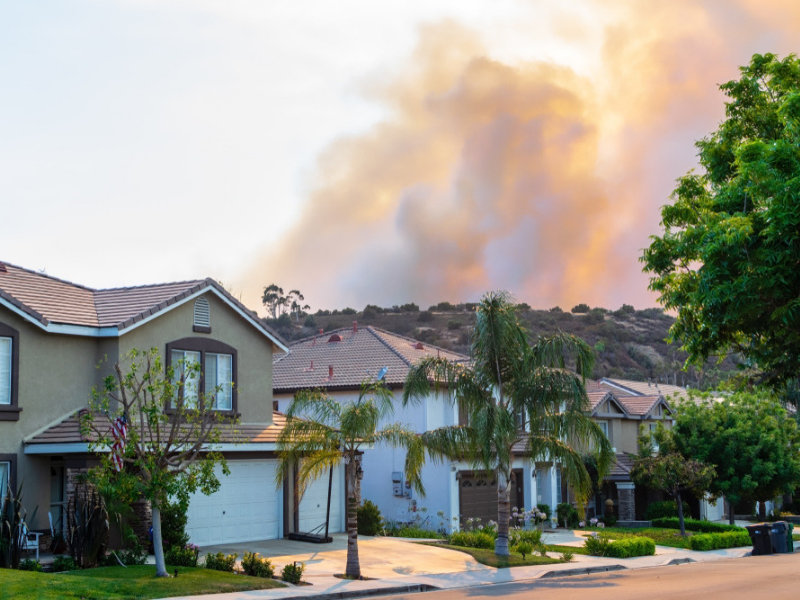Simple Tips to Make Your Move Easier

Your needs as a homeowner change over time, and you need the right home to fit those needs. Accordingly, it’s highly likely that at some point in your future you will experience another moving day. While moving can be challenging, there are resources to make it easier. If you are remaining in your current area, your Windermere agent can continue to be a valuable resource on communities, schools, utilities, transportation, recreational opportunities, and more.
If you are moving out of the area, your agent can help you with a referral to another reputable agent in your new community. Many agents also have relationships with real estate-related service companies in their area whom they can call upon for information regarding title, escrow, mortgages, temporary housing, and moving services. They can also help guide you in your search as you learn more about new communities and relocation services.
You’ve decided to move. Now what?
Once you have reached your decision, it’s time to gather information, start making decisions and get organized. Begin by creating a “move” file to keep track of your estimates, receipts, and other information. If you’re moving for a job, some expenses may be deductible, so you’ll want the paperwork when tax time comes.
If you are moving out of the area, start researching your new community and ask your agent for help in finding a referral agent in your new area. You’ll also want to determine whether you want to rent first or buy immediately. Your new agent should be able to help you with your decision. Once you know where you’re going, you’re also ready to get estimates from moving companies.
Closing one door, opening another
After you have chosen a moving date and either hired a moving company or reserved a rental truck, it’s time to wrap things up in your old neighborhood and start establishing relationships where your new home is located. This is particularly important if you are moving to a new town/city. You may want to ask your current doctors, dentists, etc. if they have any referrals on care providers in your new location. Be sure to check their recommendations on your insurance company’s online provider search list. Once you arrive, you may also want to ask new coworkers, friends or the school nurse for their recommendations.
Contact your children’s school and/or day care and arrange for their records to be sent to their new school district or day care. Call your insurance agent about coverage en route to your new home and also arrange for insurance in your new home. Remember to contact utility companies to disconnect, transfer or end service in your current home and turn on service in your new home.
You’ll want to file a change of address form with the U.S. Postal Service, either online or at your local office. If you don’t know your new address, have them hold your mail at the post office in your new locale. Don’t forget to cancel or transfer magazine and newspaper subscriptions as well.
If you belong to a health club or other association, contact them about ending or transferring your membership. Some clubs require written notice before cancellation. Finally, contact your bank or credit union to transfer or close accounts; if you have a safe-deposit box, don’t forget to clean it out before you leave.
Starting the countdown
With moving day in sight, it’s time to get organized. Here are a few items to check off your list before you start packing:
- Tie up loose ends. Be sure to send out an email or change of address cards with your new contact information to family, friends, and associates. Return library books and any other borrowed items you may still have.
- Triage your possessions. Determine what you are taking with you; what you are giving away to friends, family, or a favorite charity; and what is going to the dump or recycling center. If you have time, you can hold a garage sale or post items on craigslist.org or ebay.com.
- Clean up. Drain all gas and oil from your mower, other machinery, gas grills, kerosene stoves and lamps, etc., before loading them onto a moving truck. Empty, defrost, and clean your refrigerator at least 24 hours before your move, and prepare other appliances for moving as well.
- Have your car serviced. This is especially important if you are driving to your new home.
Packing strategies
If you are doing your own packing, start collecting boxes and/or buy them from your movers. It may take a few days to do your packing, so be sure to pack non-essential items first and label them carefully. If you have any valuables, it’s recommended that you take them with you as opposed to packing them. You risk the chance of losing those items if they’re packed away in boxes. It’s also smart to take along a box of essentials, including items such as toilet paper, paper towels, tape, soap, scissors, pens, paper, and your toiletries. That way you won’t have to track these items down once you’ve arrived in your new home.
For more information on how to make your move easier, visit our Moving Tips page here: How can I make moving easier?
Prepare For and Prevent Damage This Wildfire Season Before It Happens


After last year’s wildfires, some of the largest and deadliest in recent memory, spread along the west coast, homeowners are on edge as to what this fire season will bring. The questions of whether their home will be burnt, or if they will be affected by poor air quality, hang in the air much like the smoke of a nearby fire. Accompanied by heatwaves hitting much of the U.S. these fears can turn into realities just as quick as a spark in brush. Luckily there are ways to prevent damage and to prepare for anything coming your way.
Be prepared with fire insurance
Are you currently protected in case of a fire? Make sure to talk with your insurance agent and work on a plan to insure your home.
Questions to ask them are:
- What is covered should our home be destroyed in a fire?
- What kinds of documentation do we need to do in order to get the full benefit of the insurance?
- It’s usually a great idea to keep a log of what is in your home and how much it costs. Keep receipts and invoices if possible.
- Who at the company should we contact in case of emergency?
Be prepared with an emergency kit
Cal Fire has a comprehensive guide to all things wildfire preparedness. Here they suggest putting together an emergency kit that’s always ready in case of sudden evacuations. They recommend including:
- Map marked with at least two evacuation routes
- Non-perishable foods to last three days
- Prescriptions and medications. Also, eyeglasses or contact lenses.
- Change of clothes
- Toiletries and sanitation supplies
- And extra set of car keys, as well as credit cards, cash or traveler’s checks
- First aid kit
- Flashlight and batteries
- Copies of important documents like birth certificates and passports
- Food and water for your pet
- Chargers for cell phones and other devices
Some other items you might consider having close by are easily carried valuables, sentimental items like family photos, and computers or hard drives. Keep a sturdy pair of shoes and a flashlight near your bed for any evacuations at night.
Prevent damage by fortifying the building
Fire-Safe Landscaping
You don’t have to re-do the entire garden to slow the fire down. Home Advisor recommends you create a balance of aesthetically pleasing flora and slow-burning plants that are less likely to ignite.
Additionally, keep your garden and property free of dry materials that are ideal for kindling either in your bonfire or for a wildfire. Not only does creating this barrier protect your home, it also gives firefighters a safe area to work from as they work to control the fire.
To see what plants to use and other ways to fireproof your property, visit HomeAdvisor.
Build or remodel with flame-resistant materials
Materials like brick, stucco, metal, or concrete are great exteriors that can prevent the fire from taking hold of your home, at least initially. If your home is already built with one of these materials, the weak points might lie in your extremities like your deck or porch. Consider re-building these with fire-proof materials or add a coating to protect them.
Additionally, protect the most vulnerable areas of your home, like your windows and any air vents. Add retractable fireproof panels to your windows or replace the glass with wire glass or fire-proof safety glass. Don’t forget your skylights or windows on your doors.
The Risks, Rewards, and Benefits of Owning Rental Property


One area of the real estate market that is thriving right now is rental property. In the first quarter of this year, landlords and property managers across the country rented more apartments and homes than they have during the first quarters of the past ten years. And according to the Wall Street Journal, the amount that renters are willing to pay has also jumped to a nationwide average of $991 per month.
All indications suggest that the rental market will continue to improve because of the combination of low vacancy rates and rising rents. In fact, the demand for rentals is predicted to far exceed supply through 2015, with some 4.5 million new renters expected to enter the market in the next five years.
What to consider before buying a rental
Being a landlord has its challenges. The recession took a toll on rental prices for a few years and any future economic downturns could do the same. Once the job market returns to normal, there’s a strong possibility that more people will choose to move from rentals into homes of their own. And the demand for rental properties could become oversaturated at some point, resulting in an investment bubble of its own.
What’s more, while the income from a rental property can be significant, it can take at least five years before you’re making much more than what you need just to cover the mortgage and expenses. In other words, the return on your investment doesn’t happen overnight.
However, in the long run, if you select the right property, it could turn out to be one of your best investment decisions ever—especially since rental real estate provides more tax benefits than almost any other investment.
Tax deductions for the taking
One of the great things about owning rental properties is the fact that you’re able to deduct so many of the associated expenses—including a sizable portion of your monthly mortgage payment.
The commissions and fees paid to obtain your mortgage are not deductible, but the mortgage interest you pay each month is—including any money you pay into an escrow account to cover taxes and insurance. Whatever your mortgage company reports as interest on your 1098 form at the end of each year can likely be deducted.
For example, you may be eligible to deduct credit card interest “for goods and services used in a rental activity,” repairs made to the building, travel related to your rental, expenses related to a home office or workshop devoted to your rental, the wages of anyone you hire to work on the building, damages to your rental property, associated insurance premiums, and fees you pay for legal and professional services. However, as is the case with any transaction of this type, be sure to consult your attorney or accountant for detailed tax information.
What to look for
As with any real estate investment, the location of the property and its overall condition are both key. But with rental properties, there are some other factors you’ll also want to consider:
Utilities: Look for a building with separate utilities (water, electric, and gas, etc.) for each rental unit. This will make it far easier to legally charge for the fair use of what can be a very costly monthly expense.
Competition: If your property is one of the few rentals in the neighborhood, there will be less competition for interested renters.
Transportation: Rentals that are near popular public transportation options and / or major freeways (without being so close that noise is an issue) are usually easier to rent—and demand more money.
Landscaping: Properties with small yards and fewer plantings are far easier and less expensive to manage.
Off-street parking: Not only is off-street parking a desirable feature (people with nice cars usually don’t like to park on the street), it’s also a requirement for rental properties in some communities.
How to start your search
Unlike homes, rental properties do not typically have a visible ‘for-sale’ sign standing out front (as landlords don’t want to irritate, bring attention to their current renters, or turn off any prospective renters). Therefore, if you are interested in a rental property, your best option is to schedule an appointment with your real estate agent/broker to discuss your investment goals and identify what opportunities currently exist in your market place.
 Facebook
Facebook
 Twitter
Twitter
 Pinterest
Pinterest
 Copy Link
Copy Link